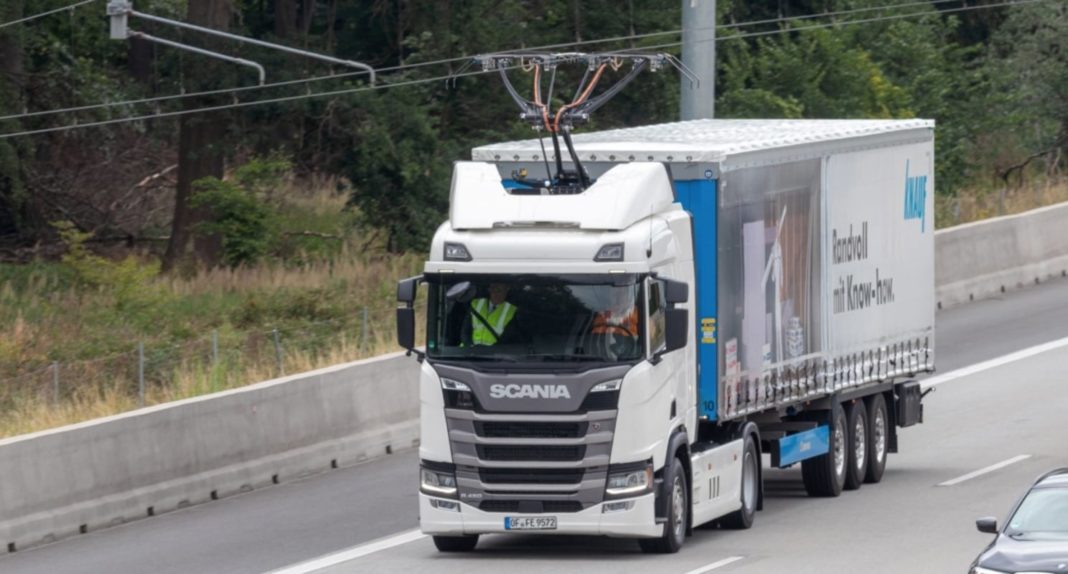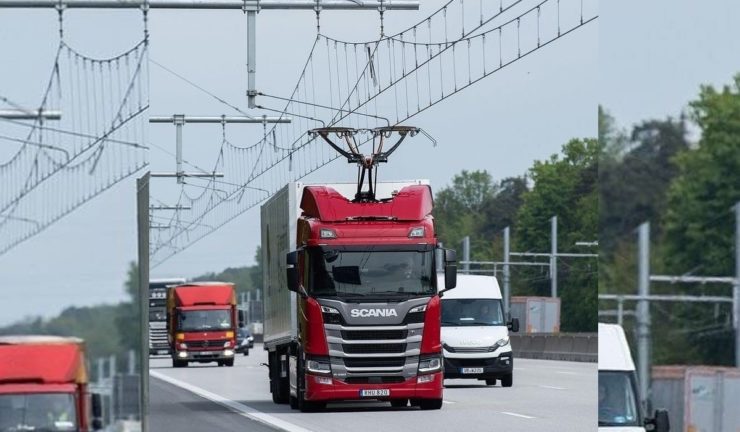
Germany’s first electrified road, situated near Frankfurt, currently has five specially-customised Scania trucks running on it
Global warming, pollution, and depleting fossil-fuels are some of the biggest concerns of the modern day, and governments of the world are working hard to find sustainable solutions to tackle these problems. At the moment, the EU has some of the strictest laws regarding vehicular emissions, and various European countries have pledged to reduce their carbon footprints in the coming years.
Germany has devised a brilliant solution towards solving the problem – an electrified highway for electric heavy trucks. Developed by Siemens, the system uses overhead cables to allow trucks to draw power for their electric motors on a 5 km stretch of A5 motorway in Hessen, thus effectively translating into zero diesel emissions for these trucks on the route. When not driving on the ‘eHighway’, the trucks will switch to their hybrid powerplants (diesel/electric).
Siemens claims that the eHighway system results in a significant reduction in CO2 and NOX emissions. While connected to the electric cables, the trucks will be able to travel at up to 90 kmph. Germany had launched eHighway in May last year, and since July 2020, the road has been fully operational for ‘eTrucks’.
At the moment, five Scania R450 hybrids trucks have been fitted with pantographs, and are being operated by five different companies – Schanz, Meyer Logistics, Contargo, Merck, and Knauf Group. Data from these heavy trucks will be collected for examination, to determine the feasibility and real-world benefits of such eHighways.
Heinrich Kerstgens, Co-Managing Director of Contargo, said: “If the feedback is positive, and if about one-third of the German motorway network is equipped with electrified catenary lines, in future approximately 80 per cent of the heavy trucks registered in Germany will be able to operate in an electric mode using this technology. That will make a really significant contribution to reducing carbon emission.”
The trucking industry is one of the largest consumers of oil, possibly even larger than the passenger car industry. With Germany’s electric-rail-type heavy trucks, there’s a huge potential for reducing the dependency on diesel in particular, and fossil-fuels in general. Germany is already conducting tests on its second electrified road, Schleswig-Holstein (A1), and will have a third one, Baden-Württemberg (B462), ready by the end of this year.

